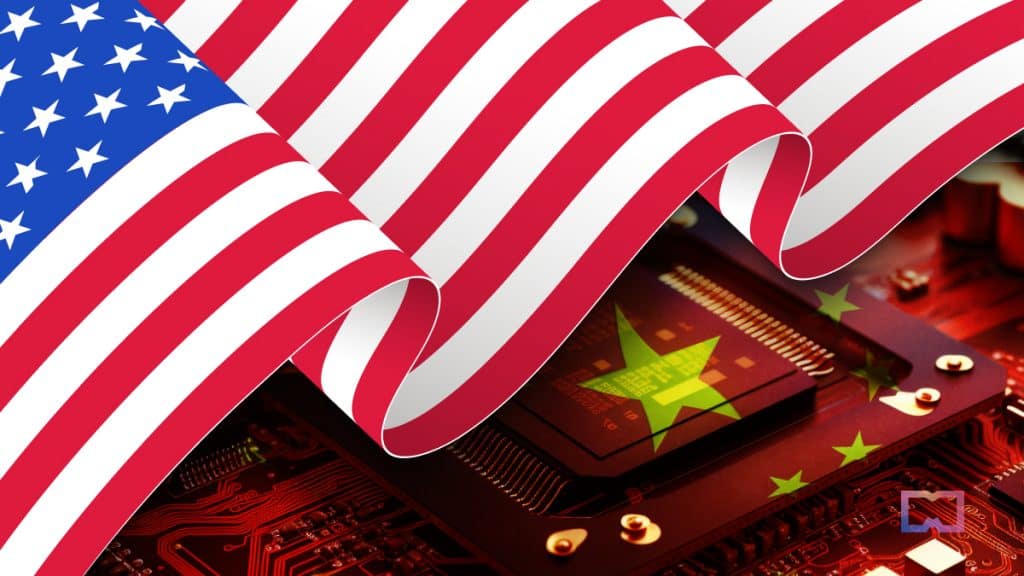U.S. Implements New Regulations to Safeguard $52 Billion AI Chip Investment Benefiting China
In Brief
The newly established chip regulations prohibit recipients of U.S. funding from investing in the growth of semiconductor manufacturing in countries that are considered potential threats. China and Russia .

In a decisive action to enhance national security, the U.S. Commerce Department has officially instituted regulations that aim to prevent China and other nations, seen as potential threats to American safety, from benefiting from semiconductor manufacturing subsidies.
As per a Reuters report This recent action is a critical procedural milestone, enabling the Biden administration to begin the distribution of $39 billion in subsidies earmarked for semiconductor production, part of the ‘Chips and Science’ legislation, which allocates an impressive total of $52.7 billion to strengthen the U.S. semiconductor sector, promote research initiatives, and develop a skilled workforce.
The regulations, proposed back in March, set out a strict framework—essentially creating ‘guardrails’—that specifically prevent recipients of U.S. funding from expanding semiconductor production operations in designated countries viewed as security risks. China and Russia .
Additionally, these rules bar recipients of incentive funds from engaging in joint research efforts or technology-sharing with foreign companies located in these high-risk nations.
This latest update follows the Department’s introduction of export restrictions back in October 2022, aimed at cutting off China's access to particular semiconductor chips produced with U.S. technology. This strategic initiative seeks to slow down Beijing's advancements in both technology and military capabilities.
Commerce Secretary Gina Raimondo stressed the critical need for strict oversight, declaring, 'We must ensure that not a single dollar from this initiative is used to prop up China’s position.' She made this statement during her testimony before Congress on Tuesday.
The new guidelines provide the Commerce Department with the authority to reclaim federal funding if any recipient is found to violate the outlined restrictions.
Raimondo reiterated her dedication to swiftly approving funding requests while highlighting the importance of accuracy in the decision-making process, stating, 'I feel the pressure. We're not where we need to be, but ensuring correctness is paramount. If it takes an extra month or so to get everything aligned, I will advocate for that necessity.'
Implications of New Chip Regulations
According to the finalized rules, funding recipients are barred from any substantial enhancement of semiconductor manufacturing capabilities in designated risky countries for a decade. Additionally, they cannot pursue certain collaborative research or technology licensing projects with foreign entities, with exceptions made for compliance with international norms, patent licensing agreements, and the use of foundry and packaging services.
The regulations clearly delineate significant expansions in semiconductor production, especially for high-tech facilities, in nations identified as security threats. This is interpreted as increasing manufacturing capacity by over 5%. Recipients are also prevented from establishing new cleanroom environments or production lines that would cause capacity growth beyond the 10% limit.
Furthermore, certain semiconductors have been categorized as essential for national security, which imposes even stricter rules. This includes semiconductors utilized in quantum computing, advanced chips currently in use, those functioning in radiation-heavy environments, and others tailored for specific military purposes.
These new regulations reflect the United States' commitment to protecting its semiconductor industry from potential adversaries while ensuring responsible distribution of significant funds to support domestic semiconductor production and innovation.
Disclaimer
In line with the Trust Project guidelines Please be aware that the information presented here is not intended as legal, tax, investment, financial, or any other type of advice. It’s important to invest only what you can afford to erase and seek independent financial counsel if uncertain. For additional details, we recommend reviewing the terms and conditions along with the help and support sections provided by the issuing body or advertiser. MetaversePost aims for accurate and impartial reporting; however, market conditions can shift unexpectedly.







